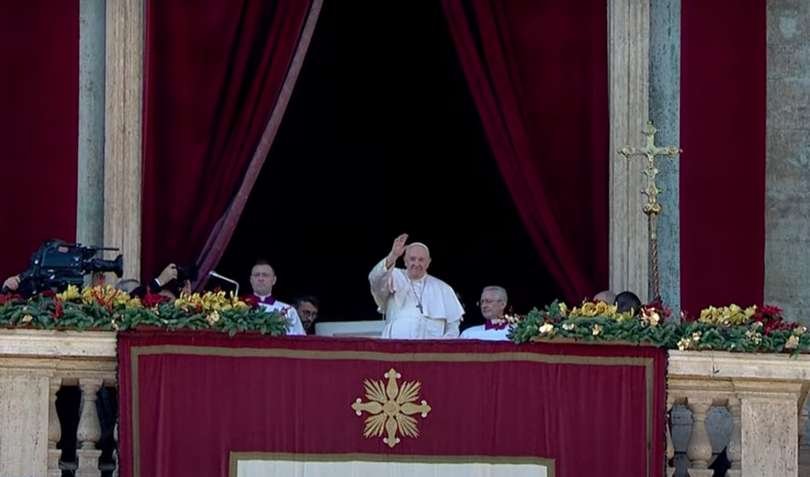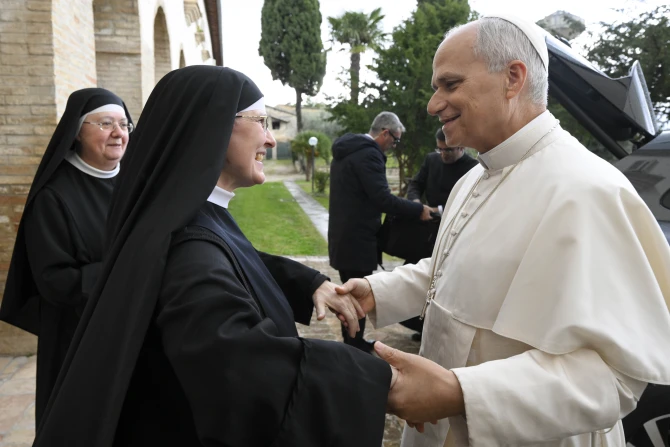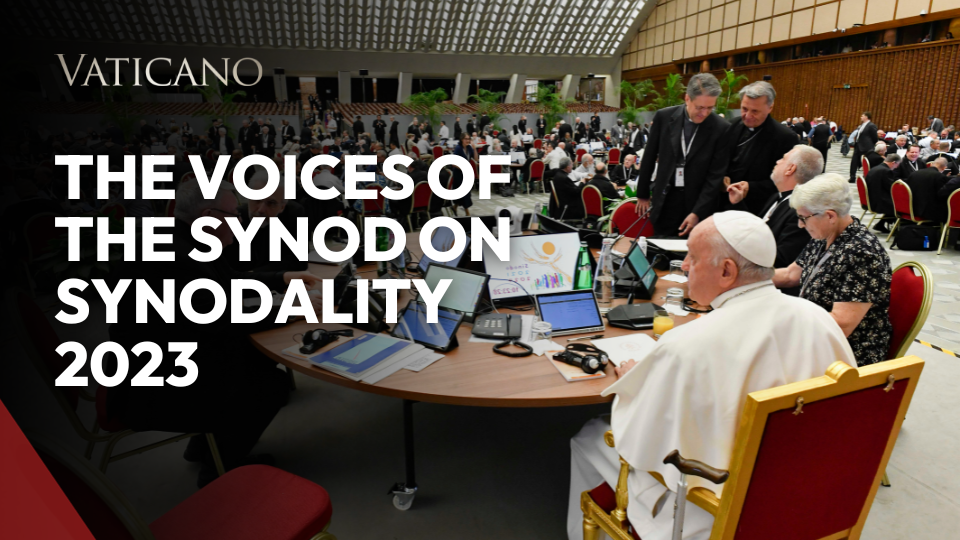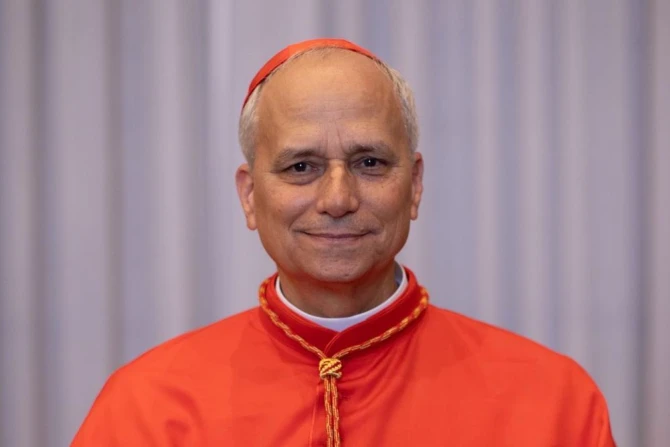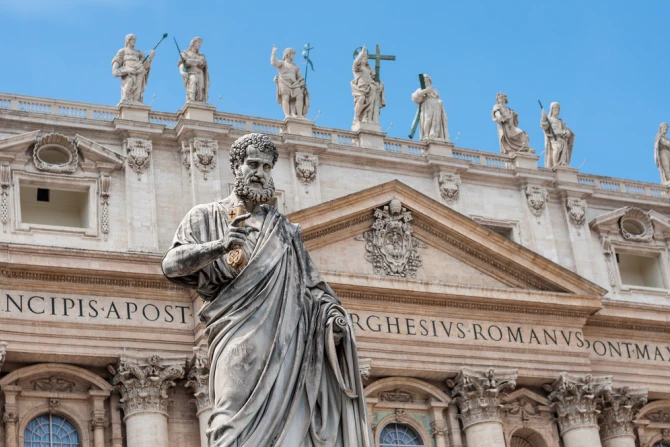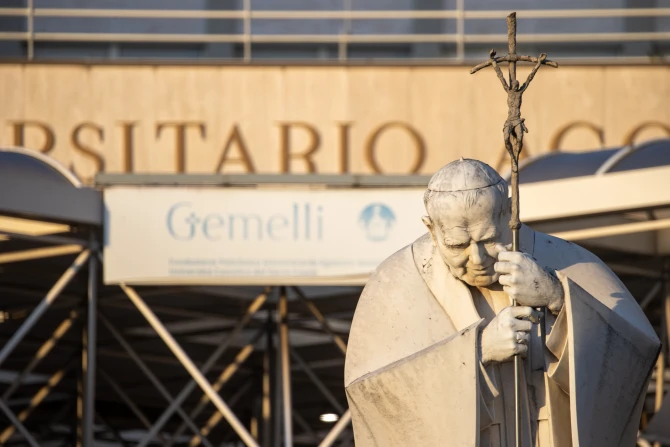Jesus being born is true peace, and is “the way of peace,” Pope Francis says in his customary Urbi et Orbi message on Christmas Day. Looking out from the Loggia of Blessings, the Pope launches a message of peace to the world, dwelling on the significance of the birth of the God Child, and highlighting that the world today suffers “a famine of peace” in this “third world war” that the Pope no longer defines as “in pieces,” suggesting that it is now a total clash. And Syria, Yemen, Iraq, Myanmar, the Holy Land, Iran, and Ukraine are some of the nations directly touched by his call for peace.
There are several thousand faithful in the square, the authorities and members of the diplomatic corps accredited to the Holy See on the parvis, listening to the Pope’s usual message “to the city and the world.” The Pope arrives walking with difficulty holding on to a cane, after he was left in a wheelchair at yesterday’s Christmas Mass. After the Vatican and Italian national anthems, the Urbi et Orbi begins.
The Lord,” says the Pope, “comes among us in the silence and darkness of the night, because the Word of God has no need of spotlights, nor of the clamor of human voices,” in that “He Himself is the word that gives meaning to existence, the light that lights the way.
Jesus,” Pope Francis recalls, “is born in our midst, He is God-with-us,” and He comes “to accompany our daily living, to share everything with us, joys and sorrows, hopes and anxieties. And he is born “like a helpless child,” and “in need of everything,” knocking at the door of the heart to “seek warmth and shelter.”
The Pope invites us to be like the shepherds of Bethlehem, to get “out of the din that anesthetizes the heart and induces us to prepare decorations and gifts rather than to contemplate the Event: the Son of God born for us.”
In Bethlehem, Pope Francis recalls – “resounds the first wailing of the prince of peace,” because Jesus himself “is our peace,” that is, “that peace which the world cannot give and which God the Father has given to humanity by sending his Son into the world.”
Pope Francis emphasizes that “Jesus Christ is also the way of peace,” because “by his incarnation, passion, death and resurrection, he opened the passage from a closed world, oppressed by the darkness of enmity and war, to an open world, free to live in fraternity and peace.”
Pope Francis urges us to follow this path, and reminds us that this can only be done by “walking behind Jesus,” stripping ourselves of the ballasts that were also Herod’s, namely, attachment to power and money, pride, hypocrisy, lies.”
These are ballasts that “exclude us from the grace of Christmas and close off access to the way of peace,” and in fact even today “while we are being given the Prince of Peace, winds of war continue to blow icy over humanity.”
Again, the Pope asks to look to Bethlehem, to the face of the child God in whom to recognize the face “of the children who in every part of the world yearn for peace.”
Pope Francis asks – referring indirectly to Ukraine, but without mentioning it – that “our gaze be filled with the faces of our Ukrainian brothers and sisters, who are living this Christmas in the dark, in the cold or far from their homes, because of the destruction caused by ten months of war.”
The invitation is to be “ready for concrete gestures of solidarity to help those who are suffering, and enlighten the minds of those with the power to silence the weapons and end this senseless war now!”
Pope Francis laments that “people prefer to listen to other reasons, dictated by the logic of the world. But the voice of the Child, who listens to it?”
Here begins the examination of the most pressing war situations for the Holy See. First and foremost, Syria, “still battered by a conflict that has faded into the background but is not over.” But also “the Holy Land, where violence and clashes have increased in recent months, with deaths and injuries.”
Pope Francis prays that “dialogue and the search for mutual trust between Israelis and Palestinians will resume,” but he also looks at the situation of Christians in the Middle East, so that “in each of those countries the beauty of fraternal coexistence between people belonging to different faiths may be experienced.”
A special thought goes to Lebanon, “so that it can finally rise again, with the support of the international community and with the strength of brotherhood and solidarity.”
Pope Francis then looks to Africa and calls for peace for the Sahel region, “where peaceful coexistence between peoples and traditions is disrupted by clashes and violence,” and moves on to Asia, calling for “a lasting truce in Yemen,” but also “reconciliation in Myanmar and Iran, so that all bloodshed may cease.”
From Asia to America: Pope Francis asks that Jesus “inspire political authorities and all people of good will on the American continent to work to pacify the political and social tensions affecting various countries,” and a special thought is addressed to the people of Haiti.
Then, Pope Francis recalls the people who “suffer hunger, especially children, while every day large quantities of food are wasted and resources are spent on weapons.”
The war in Ukraine, the Holy Father notes, “has further aggravated the situation, leaving entire populations at risk of famine, especially in Afghanistan and the countries of the Horn of Africa.”
But this happens because “every war – we know – causes hunger and exploits food itself as a weapon, preventing its distribution to already suffering populations.” So the commitment must be, especially for those with political responsibility, that “food is only an instrument of peace.”
Pope Francis also asks people to think about the people who “in this time of economic crisis, struggle because of unemployment and lack the necessities of life.”
After all, Jesus “comes to a world sick of indifference,” from which he is rejected “as happens to many foreigners, or ignores him, as we too often do with the poor.”
And so neither “the many refugees and displaced persons who knock on our doors in search of comfort, warmth and food” should be forgotten, nor “the marginalized, the lonely, orphans and the elderly who are in danger of being discarded,” nor “of the prisoners whom we look at only for their mistakes and not as human beings.” Pope Francis that Bethlehem shows that God reaches out “to the little ones, to those with open hearts,” inviting us to go like the shepherds “without delay” allowing ourselves to be amazed “by the unthinkable event of God becoming man for our salvation. He who is the source of all good becomes poor and asks for our poor humanity in alms.”
This article was originally published on ACI Stampa.

